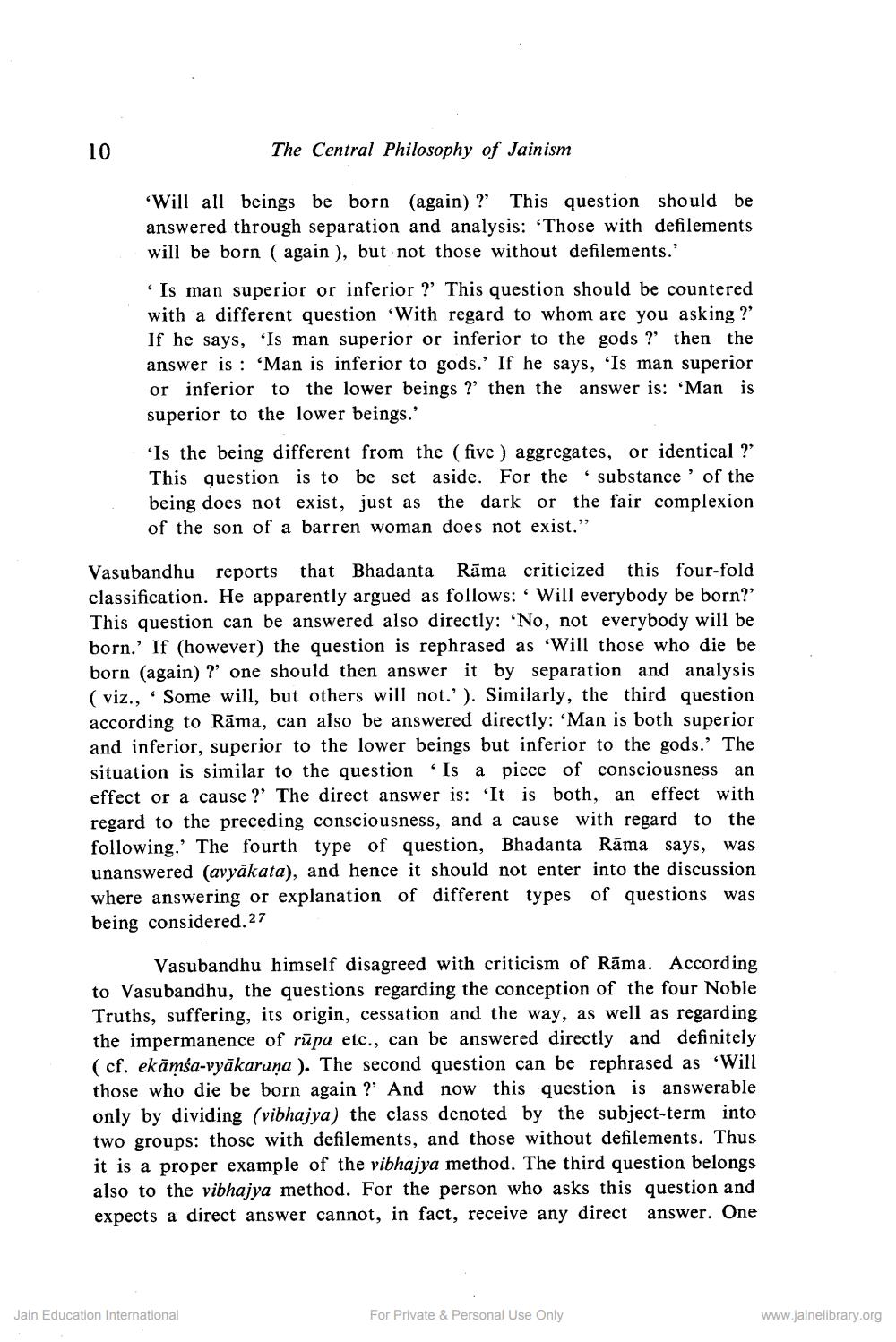________________
The Central Philosophy of Jainism
'Will all beings be born (again)? This question should be answered through separation and analysis: "Those with defilements will be born ( again ), but not those without defilements.
Is man superior or inferior ? This question should be countered with a different question With regard to whom are you asking ? If he says, 'Is man superior or inferior to the gods ? then the answer is: 'Man is inferior to gods. If he says, 'Is man superior or inferior to the lower beings ? then the answer is: “Man is superior to the lower beings.'
'Is the being different from the (five ) aggregates, or identical ? This question is to be set aside. For the substance' of the being does not exist, just as the dark or the fair complexion of the son of a barren woman does not exist.”
Vasubandhu reports that Bhadanta Rāma criticized this four-fold classification. He apparently argued as follows: Will everybody be born?' This question can be answered also directly: 'No, not everybody will be born.' If (however) the question is rephrased as "Will those who die be born (again)? one should then answer it by separation and analysis (viz., Some will, but others will not.'). Similarly, the third question according to Rāma, can also be answered directly: "Man is both superior and inferior, superior to the lower beings but inferior to the gods.' The situation is similar to the question 'Is a piece of consciousness an effect or a cause ?' The direct answer is: 'It is both, an effect with regard to the preceding consciousness, and a cause with regard to the following.' The fourth type of question, Bhadanta Rāma says, was unanswered (avyākata), and hence it should not enter into the discussion where answering or explanation of different types of questions was being considered. 27
Vasubandhu himself disagreed with criticism of Rāma. According to Vasubandhu, the questions regarding the conception of the four Noble Truths, suffering, its origin, cessation and the way, as well as regarding the impermanence of rūpa etc., can be answered directly and definitely (cf. ekāņśa-vyäkaruņa ). The second question can be rephrased as "Will those who die be born again ?' And now this question is answerable only by dividing (vibhajya) the class denoted by the subject-term into two groups: those with defilements, and those without defilements. Thus it is a proper example of the vibhajya method. The third question belongs also to the vibhajya method. For the person who asks this question and expects a direct answer cannot, in fact, receive any direct answer. One
Jain Education International
For Private & Personal Use Only
www.jainelibrary.org




